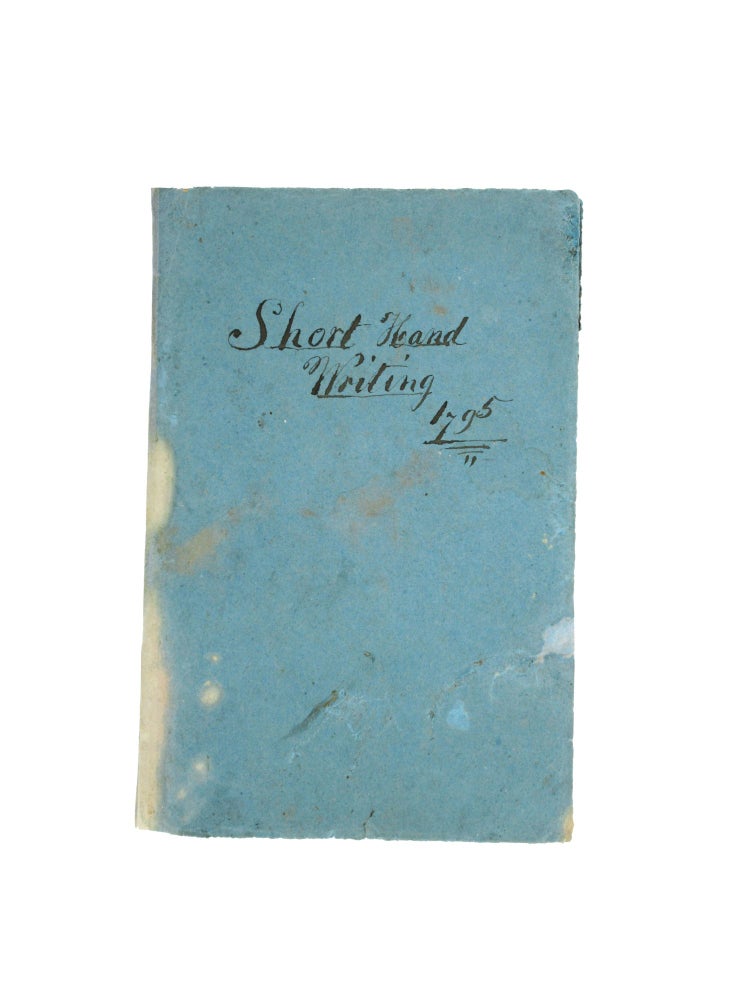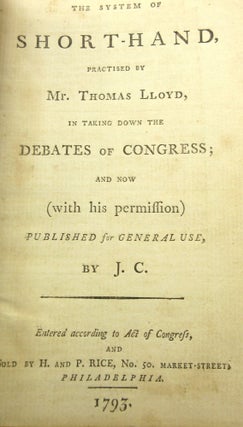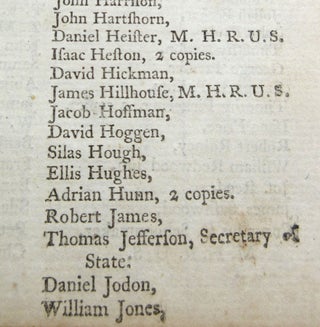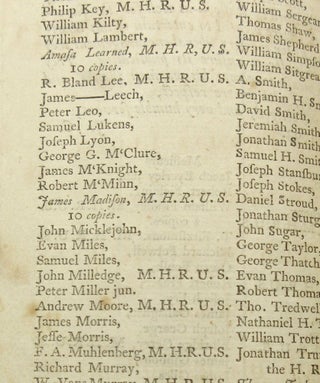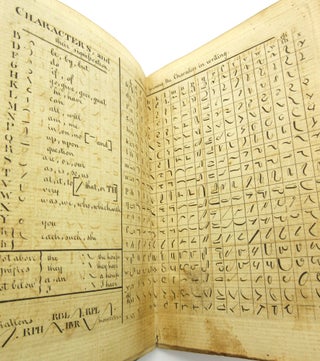The System of Short-Hand, Practised by Mr. Thomas Lloyd, in Taking Down the Debates of Congress; and Now (With His Permission) Published for General Use
Philadelphia: Sold by H. and P. Rice, No. 50 Market-Street, 1793. Duodecimo. Contemporary blue paper wrappers with early manuscript title on front wrapper. Wrappers are worn with neat repair along spine; rear wrapper discolored. Shorthand annotation on front free endpaper and second plate. Small tear to outer margin of initial leaves not affecting text. Minor soiling to folding plate with tear to inner margin just touching text of leaves B1-B2, else very good. Includes the subscriber list as well as two engraved plates. Item #29
An exceptional copy of one of the earliest shorthand manuals printed in America—and this copy is rarer still because it contains the oft-missing subscriber list, which includes Thomas Jefferson (then Secretary of State), James Madison (then a Virginia representative), and members of Congress, among others. This short manual describes the shorthand system of Thomas Lloyd (1756–1827), who was known as the “Father of American Shorthand” on account of his stenographic skill and method of shorthand. Lloyd was born in London and attended the College of St. Omer in Flanders, where he first learned shorthand, before emigrating to America prior to the beginning of the Revolutionary War. He volunteered and fought for the Maryland militia and was ultimately wounded at the Battle of Brandywine and discharged from service in 1779. Lloyd moved to Philadelphia in 1780 and began work as a stenographer and teacher. He became well-known for recording the acts of the Continental Congress, and his Congressional Register became widely recognized as the most accurate and official report of congressional debates. He was ultimately appointed as the official recorder of the second congressional session, but his work and reports were not without controversy. He became widely recognized as an ardent constitutionalist, and he was criticized for his refusal to publish his notes of anti-Federalist speeches and of even taking bribes. Lloyd’s publication of his Congressional Register concluded in 1790 whereupon he returned to London, but was soon imprisoned for debt. Although Lloyd would return to America in 1796, he was not able to recapture his prior renown as a congressional reporter. John Carey published this manual in Philadelphia in 1793 with his brother Matthew Carey, a prominent publisher and economist. This manual is rare in the marketplace, and has not appeared at auction since 1965. An important piece of early congressional history produced by an important witness to America’s formative debates.
Price: $2,500.00

